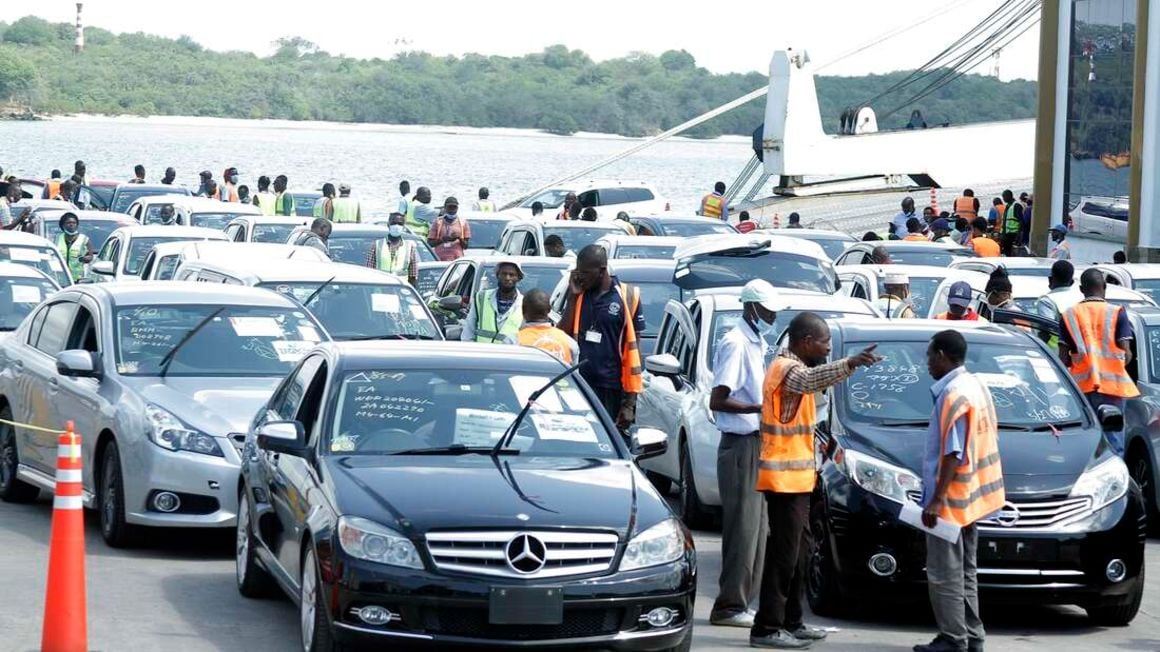Importing a secondhand motor vehicle into Kenya can be a complex process, but it can also be a great way to get a good deal on a used car. Secondhand cars from Japan are known for their reliability and quality, and they can be found at much lower prices than in Kenya. However, there are a few things you need to know before you start importing a secondhand motor vehicle into Kenya. In this article, we will walk you through the step-by-step procedure of clearing secondhand motor vehicles in the Port of Mombasa, Kenya.
We will cover everything from getting the necessary documents to paying the import duty and taxes. We will also discuss the registration process with the National Transport and Safety Authority (NTSA).
By the end of this article, you will have a good understanding of the procedure of clearing a secondhand motor vehicle in the Port of Mombasa. You will be able to make an informed decision about whether or not to import a car, and you will know what to expect along the way.
Procedure of Clearing Secondhand Motor Vehicles in the Port of Mombasa, Kenya:
1. Importation requirements
Before you can import a secondhand motor vehicle into Kenya, you need to make sure that it meets the following requirements:
- The vehicle must be less than 8 years old.
- The vehicle must be right-hand drive.
- The vehicle must have a valid import permit from the Kenya Bureau of Standards (KEBS).
- The vehicle must have a valid roadworthiness inspection certificate from the National Transport and Safety Authority (NTSA).
2. Shipping the vehicle
Once you have all the necessary documents, you can ship the vehicle to Kenya. The shipping process can take anywhere from 4 to 8 weeks, depending on the shipping method and destination.
3. Clearing the vehicle at customs
When the vehicle arrives in Mombasa, it will need to be cleared at customs. This process can take a few days, and you will need to work with a licensed clearing agent to handle the paperwork. The clearing agent will require a copy of the following documents:
- Import permit from KEBS.
- Roadworthiness inspection certificate from NTSA.
- Bill of lading.
- Commercial invoice.
- Packing list.
- Insurance certificate.
4. Paying the import duty and taxes
Once the paperwork is complete, you will need to pay the import duty and taxes on the vehicle. The import duty and taxes are calculated based on the CIF value of the vehicle (cost, insurance, and freight).
5. Releasing the vehicle from customs
Once you have paid the import duty and taxes, the vehicle will be released from customs. You will then be able to collect the vehicle from the clearing agent.
6. Registering the vehicle with the NTSA
Once you have collected the vehicle, you will need to register it with the NTSA. The registration process can take a few weeks, and you will need to provide the following documents:
- Original bill of lading.
- Original customs clearance certificate.
- Original registration certificate from Japan.
- Copy of your KRA PIN certificate.
- Copy of your national ID card.
7. Getting insurance for the vehicle
Once the vehicle is registered, you will need to get insurance for it. Insurance is mandatory for all vehicles in Kenya.
8. Getting a driving license
If you are not a Kenyan citizen, you will need to get a driving license in Kenya. You can apply for a driving license at the nearest NTSA office.
9. Enjoying your new vehicle!
Once you have completed all the necessary steps, you can finally enjoy your new vehicle!
Here are some additional tips for clearing a secondhand motor vehicle in the Port of Mombasa:
- Start the clearing process as soon as the vehicle arrives in Mombasa. This will help to avoid delays.
- Work with a reputable clearing agent who has experience clearing vehicles.
- Be prepared to pay the import duty and taxes.
- Be patient and persistent. The clearing process can be complex and time-consuming.
I hope this guide has been helpful. If you have any further questions, please do not hesitate to ask.
'Want to send us a story? Submit to NAIROBIminiBLOGGERS via our Email nairobiminiblogger@gmail.com'

Drop Your Comments, What do you think About The Article?